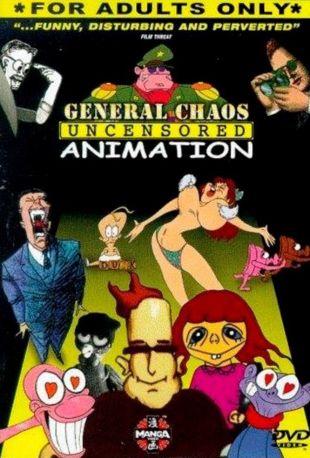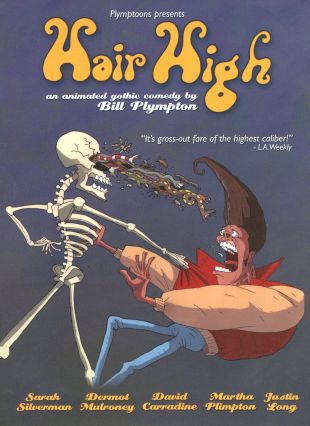An Oscar-nominated animator and cartoonist, Bill Plympton has been amusing and provoking audiences with his surrealist, off-kilter take on everyday life for years. Born in Portland, Oregon, on April 30, 1946, Plympton developed a fascination with animation as a child. Frequently trapped indoors due to Oregon's rainy climate, he spent hours nurturing both his drawing skills and animation. At the age of 14, he sent some of his cartoons to Disney, only to be told that he was too young to work as an animator, but that his drawings showed promise. After college and a stint in the National Guard to avoid the Vietnam War, Plympton moved to New York City, where he began serving a long tenure as an illustrator, cartoonist, and magazine designer. His illustrations graced the pages of such diverse publications as The New York Times, Vogue, House Beautiful, Penthouse, Rolling Stone, and Glamour. In 1975 he began the cartoon strip Plympton in the Soho Weekly News. By 1981, the strip was syndicated in over 20 newspapers throughout the country.
In 1983, Plympton was approached to animate his first film, a short for Android Sister Valeria Wasilewski's production of Jules Feiffer's song Boomtown. The finished product gave Plympton the motivation to make his own animated film, entitled Drawing Lesson #2 (1987). That same year, in collaboration with songwriter Maureen McElheron, Plympton made Your Face, a beautifully disturbing animated short that earned an Academy Award nomination. The success of the film increased his popularity, and Plympton's work began appearing with increasing frequency on MTV and at various animation festivals, and following a string of prize-winning shorts ("One of Those Days," "How to Kiss," "25 Ways to Quit Smoking," and "Plymptoons"), he decided to make his first feature-length film. The result was The Tune (1992), an animated musical comedy about a harried songwriter's desperate search for inspiration. Sections of the film were released as shorts to finance the production, and one of them, "Push Comes to Shove," won the Prix du Jury at the 1991 Cannes Festival. Meanwhile, Plympton was asked to make a few TV commercials and duly produced highly original work for such products as Trivial Pursuit and NutraSweet.
Deciding he wanted to try his hand at live action, Plympton first made J. Lyle and then, in 1996, Guns on the Clackamas. A behind-the-scenes look at the making of a fictional disastrous Western, it was a satirical poke at egomaniacal directors and was inspired by the 1937 movie Saratoga, in which star Jean Harlow died during the filming and a stand-in was used to finish the production.
Subsequently returning to animation, Plympton once again ventured into the realm of the bizarre with So I Married a Strange Person in 1997. The story of a newlywed couple's less than typical adventures on their wedding night, it was a politically incorrect, adults-only affair that invited such descriptions as "Akira with humor" and "an animated Pulp Fiction." It provided a nice predecessor for his Sex and Violence (1998), another delightfully warped addition to Plympton's famously bizarre resume.



